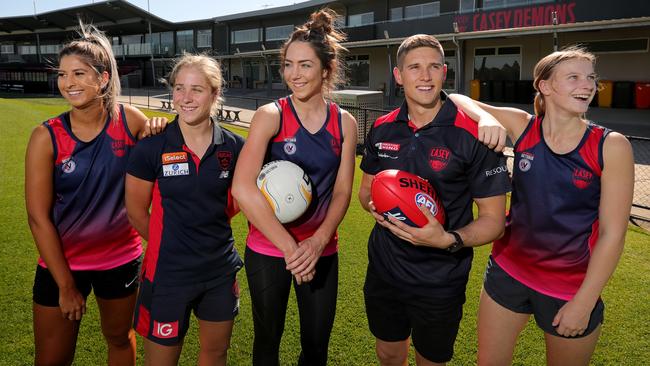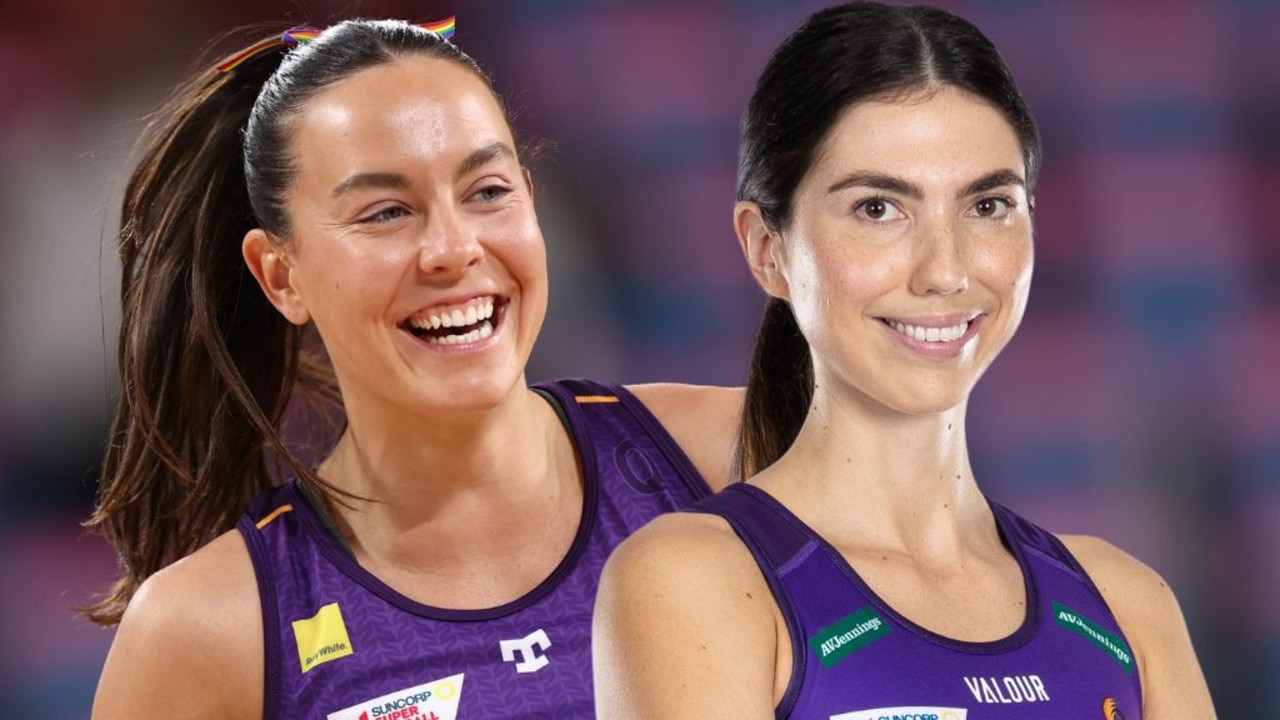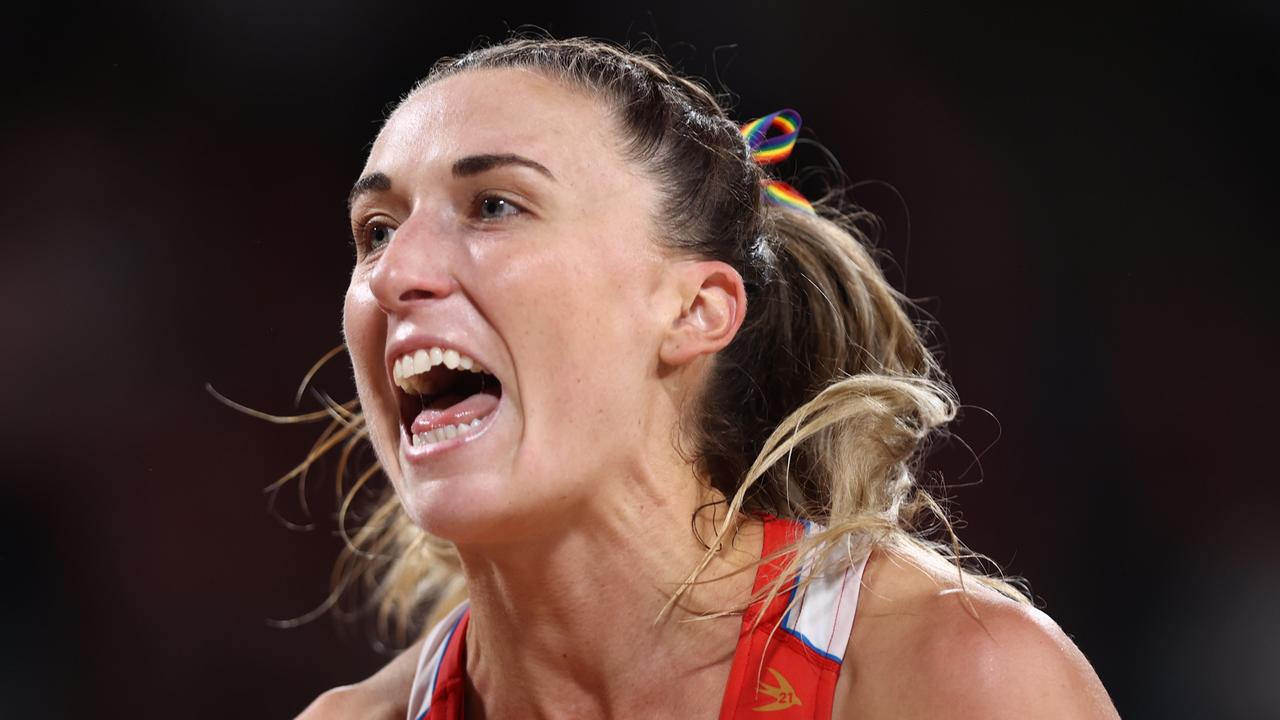Doubts over combined football-netball clubs
The concept of a combined football-netball club has deep roots in regional Australia, and is now on the rise at the elite level.

The concept of a combined football-netball club has deep roots in the bush, and is now on the rise at the elite level.
This model has been beneficial for some teams in Super Netball, but there are fears among netball’s leaders about the true motivations behind overtures from football clubs
Three Australian teams were added to the new Super Netball league in 2017, each connected to a football code in a different way.
The Magpies are wholly owned by Collingwood; Sunshine Coast Lightning are part-owned by the Melbourne Storm; and Giants Netball are run in a strategic partnership with Greater Western Sydney.
The Lightning have won two premierships in two seasons but the Magpies have struggled for form and a fanbase despite the strength of the Collingwood brand.
But there are high hopes for the Magpies next year, after Collingwood restructured its women’s sport division under former Thunderbirds dual-premiership coach Jane Woodlands-Thompson.
Australian Diamonds head coach Lisa Alexander commended the Melbourne Storm for showing an appetite to learn netball history and culture, and for not being proscriptive when it came to the Lightning’s high-performance programming.
Alexander, a keen AFL fan who has hinted at a code-switch when she leaves the Diamonds, has too often seen male codes underestimate the complexities of running a netball club.
“What I probably think (is that the) AFL doesn’t know what it doesn’t know. It’s siloed and it’s local, and it sometimes misses the point in understanding gains that are global, which netball has,” Alexander said.
She points at the current demise of the Fish Creek Football and Netball Club in Victoria’s east as an example of what some in netball fear about the AFL: focusing on elite competition at the expense of grassroots organisations.
The rough calculus of these partnerships is that the football clubs provide access to facilities, visibility, and sponsorship, and the netball clubs bring hordes of female members, female perspectives in leadership, and the cultural boost lent by a scandal-free sport.
Netball Victoria chief executive Rosie King came to the sport after six years at the Geelong Cats, and says that any union between a football and netball club can succeed only if it’s done for the right reasons.
“A good partnership really should be a win-win,” she says. “It’s really important that a partnership is not explored through a smokescreen of access to facility funding from governments.’’
The Andrews government in Victoria has pledged more than $31 million in recent months to improve netball facilities around Melbourne, and greenlit a $64m redevelop of the State Netball and Hockey Centre in June.
That kind of cash, plus a boost in sponsorship interest around women’s sport, has brought bidders to King’s doorstep.
“We had a presentation from a football club to come in and do a partnership with the Vixens but when we looked at it there was no benefit for the Vixens,” she said. “The benefit was for the branding of the football club.
“Likewise, I had an approach from a rugby club to buy the Vixens. But again that would be something that we would never entertain because we fundamentally believe that we can do netball better than football can.”
Netball Australia has ruled out any new Super Netball licences under the current television broadcast agreement, which concludes after the 2021 season.
Instead, AFL teams keen to expand their involvement in women’s sport have turned their attention to the community level.
Monash University’s Victorian Netball League team was rebranded as Hawks Netball this year after forming a partnership with Hawthorn. Casey Netball, in Melbourne’s southeast, was granted a new licence in the state league starting next season after striking a similar deal with the Melbourne Demons.
The Hawks played finals for the first time since 2013 this season, and the football and netball clubs have been happy with the results so far.
Things are similarly positive at Casey, where life member and netball club president Rebekah Bogos feels supported by the Melbourne Football Club.
The Demons are helping drive foundation membership numbers at Casey Netball by throwing in free tickets to three AFL games, as well as Casey VFL and VFLW home matches.
Casey Football president Peter Maynard says the partnership is a natural one for a growing sports hub that wanted to reach as many locals as possible.
He says the best way to avoid tokenistic gestures when investing in women’s sports is focusing on outcomes for everyone.
“If I can go to Casey Netball and promote our brand, and our offerings, to their database, there’s a benefit for us. And vice versa,” he said. “If we can improve the offering, opportunities, events and pathways, that’s real.”
Casey Netball has started pre-season training at the Demons’ facilities, and are looking to sign some of the club’s AFLW players to take the court after their season wraps.
“Joining forces with Melbourne has been great,” Bogos says.




To join the conversation, please log in. Don't have an account? Register
Join the conversation, you are commenting as Logout